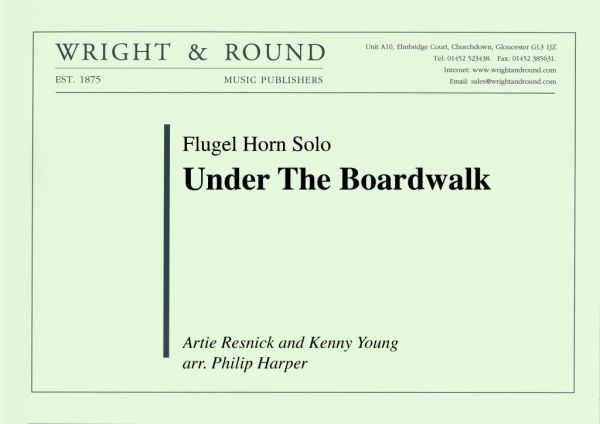We've found 287 matches for your search. Order by
Results
-
£24.95
ARIOSO AND CAPRICE (Bb Flugel Horn or Eb Horn Solo with Brass Band Set) - Ronald Hanmer
Estimated dispatch 7-14 working days
-
 £24.95
£24.95ARIOSO AND CAPRICE (Bb Flugel Horn or Eb Horn Solo with Brass Band Set)
Estimated dispatch 7-14 working days
-
£24.95
NOCTURNE (Flugel Horn or Cornet/Trumpet Solo with Brass Band Set) - Gareth Wood
Estimated dispatch 7-14 working days
-
 £50.90
£50.90NIKITA (Flugel Horn or Cornet Solo with Brass Band) - John, Elton - Fernie, Alan
Grade: Easy/Medium.
Estimated dispatch 7-14 working days
-
 £24.95
£24.95NOCTURNE (Flugel Horn or Cornet/Trumpet Solo with Brass Band Set)
Estimated dispatch 7-14 working days
-
 £50.90
£50.90OUR LOVE IS HERE TO STAY (Flugel Horn or Trumpet Solo with Brass Band) - Gershwin, George - Richards, Goff
Grade: Medium.
Estimated dispatch 7-14 working days
-
 £50.90
£50.90SLOVAK WINE-CZARDAS (Flugel Horn or Cornet Solo with Brass Band) - Hudec, Adam
Grade: Medium.
Estimated dispatch 7-14 working days
-
 £35.00
£35.00Under The Boardwalk (Score and Parts)
Arranged as a flugel horn solo and played by Cory Band as part of its 2015 Brass in Concert winning programme, this piece is as simple as it gets. Playable by all levels of band.
Estimated dispatch 7-14 working days
-
£18.00
Under The Boardwalk (Score Only)
Arranged as a flugel horn solo and played by Cory Band as part of its 2015 Brass in Concert winning programme, this piece is as simple as it gets. Playable by all levels of band.
Estimated dispatch 7-14 working days
-
£35.00
Under the Boardwalk - Resnick, A & Young, K - Harper, P
Arranged as a flugel horn solo and played by Cory Band as part of its 2015 Brass in Concert winning programme, this piece is as simple as it gets. Playable by all levels of band.4th section +Duration 3 minsListen to Helen Williams (Flugel Horn) with the Cory BandCourtesy of World of Brass
In Stock: Estimated dispatch 1-3 working days
